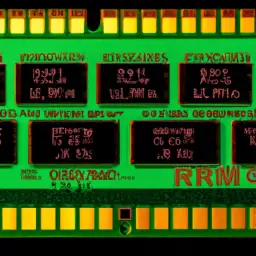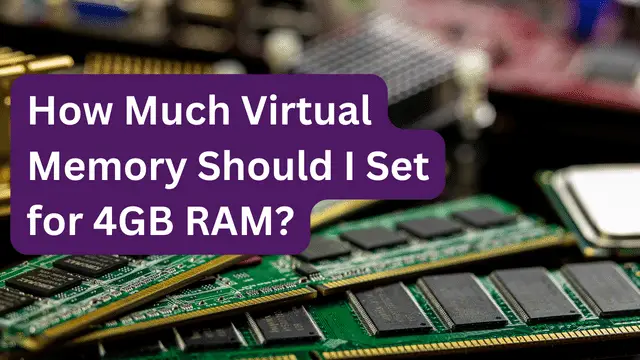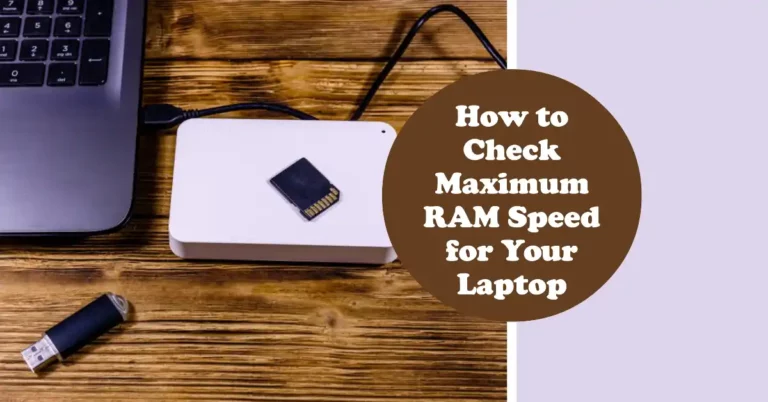Does RAM Size Affect CPU Performance?
Yes, ram size does affect CPU performance. Generally speaking, the larger your RAM capacity is, the more information your CPU can process at a single time. Studies have found that increasing RAM from 4GB to 8GB can improve application speed by up to 20%. Moreover, having 16GB of RAM or higher can boost gaming and software performance by around 30-40%. Therefore, it’s clear that investing in more RAM will give you better CPU performance.
It goes without saying that RAM and CPUs are two essential pieces of any modern computing machine. Both play a vital role in ensuring an efficient and smooth running system; but when it comes to judging which is more important in terms of performance – does RAM size really affect CPU performance? That’s exactly what this article will explore.
Relationship Between RAM And CPU
Alright, let’s talk about the relationship between RAM and CPU. It’s like a puzzle: all the pieces fit together to make your system run smoothly. You can’t have one without the other – they’re both necessary for performance. Think of it as two sides of the same coin; you need both in order to get results.
When it comes down to it, RAM size is crucial when considering how much impact your CPU will have on overall system performance. The larger the RAM capacity, the more efficiently your processor can work because it has access to more resources at once. So if you want top-notch computing power, then investing in plenty of rams should be high on your list. That way, you’ll be able to maximize your CPU potential.
RAM and CPU are intricately linked and any changes made to either component may drastically alter performance levels. Now that we know this integral connection exists, let’s take a look at what factors can affect CPU performance beyond just memory size…
Factors That Impact CPU Performance
When it comes to CPU performance, there are a few key factors that can’t be overlooked. Take my buddy’s gaming setup for example; he was determined to get the best performance out of his rig so he upgraded the RAM from 8GB to 16GB and noticed an immediate improvement in speed and overall responsiveness. But it wasn’t just the increased RAM size that made this difference – other components also played a crucial role.
Now, when you’re trying to up your game with some extra horsepower under the hood, memory is only one piece of the puzzle. While more RAM obviously helps with multitasking and running multiple programs simultaneously, there are other specs like processor type, clock frequency, number of cores, and cache size that have just as much impact on performance. You need all these pieces working together if you want optimal computing power.
To maximize efficiency, every component needs to be taken into consideration – not just RAM size – so make sure you put enough thought into each element before deciding what upgrades or replacements will give you the best bang for your buck.
The Role Of RAM In CPU Performance
Alright, let’s talk about the role of RAM in CPU performance. You see, RAM is a key factor when it comes to processor power and speed. Think of it like this: if you had an engine with no gas, well then you ain’t goin’ nowhere. Same goes for your computer – without enough RAM, its gonna be slow and sluggish.
Now that don’t mean more RAM automatically means faster speeds. It’s all about how well balanced your system is between components like RAM, storage space, graphics cards and so on. But overall, having adequate amounts of RAM can keep your machine from lagging or crashing during intensive tasks. So yeah, not only does size matter but also quantity when it comes to keeping your computer running at peak performance levels. Ya dig?
We talked about what makes up good CPU performance – now let’s take a look at the benefits of increasing ram size…
Benefits Of Increasing RAM Size
Increasing RAM size is like adding rocket fuel to your computer’s engine. You get a huge burst of speed and power, allowing you to do more with less effort. To truly understand the benefits of increasing RAM size, here are 4 key points for consideration:
- Faster processing times – Increasing RAM allows applications to quickly access data from memory instead of relying on slower hard drive speeds. This results in faster loading times for programs and shorter wait times when running multiple tasks at once.
- Improved multitasking capabilities – With increased RAM size, your CPU can handle more processes simultaneously without slowing down or crashing altogether. So, if you’re someone who likes to have several tabs open while gaming online or streaming videos, this will be an especially beneficial upgrade for you.
- Greater stability – When there’s not enough available RAM, the system needs to constantly read and write data between the hard drive and memory which leads to instability issues such as freezing or crashing. Having additional RAM helps prevent these problems by reducing the amount of disk activity required for operations.
- Reduced energy consumption – Because it takes less energy for a processor to access information from RAM than from a hard drive, having larger amounts of installed memory means your computer won’t need as much juice during usage – resulting in lower electricity bills over time.
For those looking to take their computing game up a notch, investing in more RAM could be the way forward since it offers plenty of performance-boosting advantages that make life easier (and cheaper).
Drawbacks Of Increasing RAM Size
Now, you may be wondering why I’m talking about the drawbacks of increasing ram size. Well, it’s important to consider both the benefits and drawbacks when making decisions like this. So here we go:
There are some definite downsides to having too much RAM in your system. Firstly, more RAM means a higher cost. You have to pay for all that extra memory – and depending on how much you get, those costs can add up quickly. Secondly, large amounts of RAM take up physical space inside your computer case or laptop.
If your machine doesn’t have enough room for all that RAM, you’ll need to buy bigger components or upgrade to a new model altogether. Thirdly, if you’re using older technology such as DDR2 or DDR3 memory modules, having too much RAM won’t actually improve performance anyway because these types don’t support larger capacities than 16GB or 32GB respectively.
Finally, excessive amounts of RAM will also lead to increased power consumption which could result in shorter battery life for laptops with limited resources.
All things considered then, there is definitely merit in considering whether adding more RAM would really benefit your system before taking the plunge and spending money on upgrades – especially if you’re running an old machine.
Recommended RAM Size For Optimal CPU Performance
When it comes to determining the ideal amount of RAM for optimal CPU performance, size matters. Just like a house needs enough space to comfortably fit its inhabitants and their belongings, so too does your computer need sufficient RAM in order to function properly.
Think about it this way: if you had an old PC with just 128MB of RAM, you’d be lucky if it could even open a single browser window without crashing.
That’s why I always recommend having at least 8GB of RAM as a bare minimum – not only will you have more than enough room for all your programs and apps, but you’ll also get outstanding performance from your CPU. Plus, there’s no point wasting money on buying extra RAM that may never be used; stick to what you really need and save the rest for future upgrades.
How Much Of A Difference Will Increasing RAM Make In CPU Performance?
First up, more RAM gives the processor more room to breathe and expand operations. This means faster loading times for applications – ‘cos there’s less bottlenecking from having too little memory resources.
Secondly, increased RAM improves multi-tasking capabilities by allowing multiple programs and processes to run simultaneously without slowing down system speed or dropping frames.
Thirdly, if you’re into gaming then having enough RAM is paramount for smooth graphics rendering without lags or stuttering as well as enabling higher resolution textures and effects. Lastly, additional RAM helps optimize system stability so that errors are kept at bay when dealing with complex tasks like video editing or data crunching.
Now I ain’t sayin’ adding some extra RAM won’t cost ya’, but in terms of bang for buck this upgrade packs one heckuva punch. When used right, upgrading your RAM could mean smoother running systems and better overall performance than ever before. That ain’t bad news now is it?.
Is It Better To Have More RAM Or A Faster CPU?
Ya know, when it comes to which is better, more RAM or a faster CPU – that’s like saying what kind of ice cream should I get, chocolate or vanilla? It depends on your needs and wants. See, both are important parts of yer computer’s performance but they work differently.
It all boils down ta this: If you’re doing computing-heavy tasks such as video editing, photo manipulation, animation rendering etc., then an upgrade in RAM will be better for ya than upgrading the processor speed because those types of programs need extra memory for data storage.
On the other hand if you’re looking to do simple stuff like browsing the web and writing documents then getting a faster processor might actually increase performance significantly – kinda like adding rocket fuel to a race car.
So whether ya choose one or the other really just depends on how much power ya want outta yer computer. Both options have their pros and cons so make sure you think about what type of user experience ya wanna have before making any moves.
Conclusion
At the end of the day, RAM matters when it comes to CPU performance. It’s important to figure out what type and how much RAM is necessary for optimal performance in your computer. Upgrading your RAM can make a significant difference in speed and efficiency; however, there are other factors that come into play as well.
When it comes down to it, “You get what you pay for” – meaning if you have an older or budget model CPU, upgrading the RAM may be more beneficial than replacing the entire processor with a faster one. Ultimately, having both a larger amount of RAM and a powerful processor will guarantee peak performance levels from your machine.



